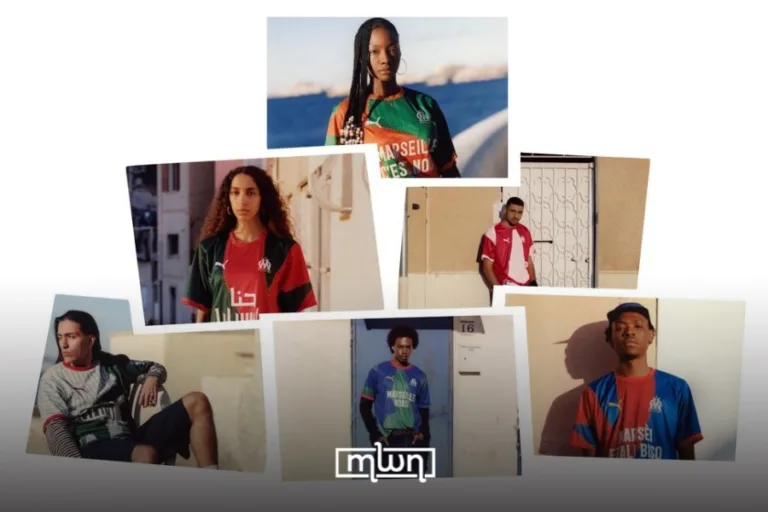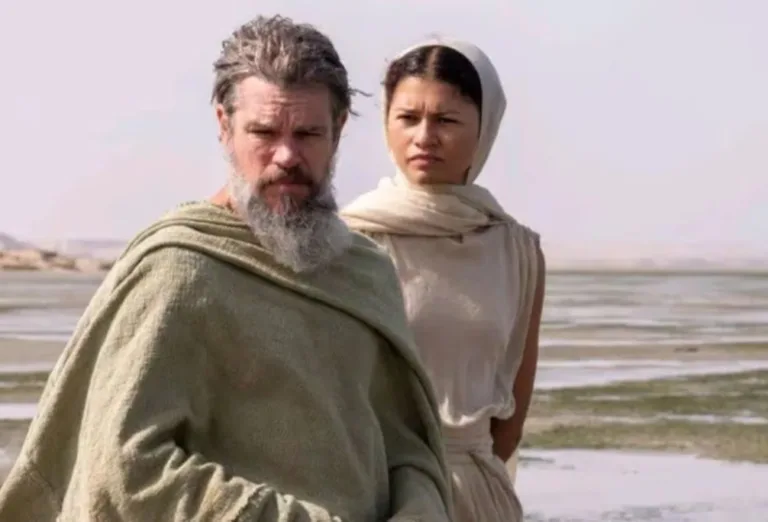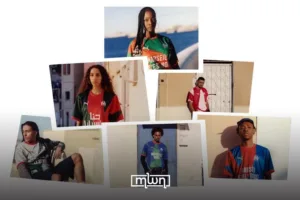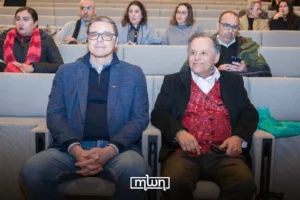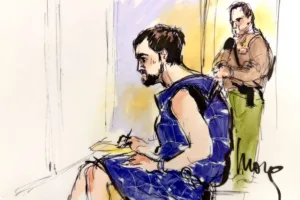Marrakech – In the summer of 2023, Sophia Alawi sat in her backyard in New Jersey listening to one of her mother’s stories, one she had heard pieces of before, but never in full.
This time, her mother spoke in detail about the 1970s, when she coached a girls’ soccer team in northern Morocco.
As Sophia listened, she thought of the photo that hung in their home: her mother surrounded by young girls in mismatched jerseys, smiling as if they had already won something bigger than the game itself.
That conversation lit the spark for Lioness, a film now in development that tells the story of Morocco’s first girls’ soccer team in 1977.
Lioness takes us to Hoceima, a Berber town in northern Morocco, where a young woman named Fatiha arrives to teach at the town’s newly opened girls’ trade school.
She carries with her a quiet determination and a longing to escape her own past. What she finds is a group of spirited tween and teen girls who are scrappy, curious, and willing to fight for something new: a soccer team of their own.
But nothing comes easy. The team is underfunded and often dismissed by their community, and families question their daughters’ time on the field.
Tradition weighs heavily, and societal pressures creep into every corner of their lives. Still, the girls lace up their shoes, chase the ball across dusty pitches, and discover something that feels like freedom.
Their resilience is the heart of a Lioness. It’s not just a sports drama, but a story about identity, courage, and the radical act of girls claiming space in a world that doesn’t always welcome them.
The timing of Lioness couldn’t be more poignant. In 2022, Morocco’s men’s team electrified the world by reaching the semi-finals of the FIFA World Cup, the first Arab and African team ever to do so.
A year later, in 2023, Morocco’s women’s team made history by qualifying for the FIFA Women’s World Cup, becoming the first Arab nation to take the field at that level. In 2030, Morocco will co-host the men’s World Cup.
Soccer pride is alive and buzzing in the country, but Lioness asks us to look back at the generations who came before, the women and girls who kicked the ball when no one believed they should.
It’s a reminder that today’s triumphs were built on yesterday’s quiet revolutions.
Sophia Alawi, the film’s writer and producer, is no stranger to navigating multiple identities. A first-generation Moroccan-Italian American from Hudson County, New Jersey, she has built her career as an actor, writer, and musician.
Since 2019, she has dedicated herself to telling stories from the MENA community, one of the most underrepresented groups in film and television.
For Sophia, Lioness is deeply personal. It’s about her mother’s legacy, but also about carving out visibility for Arab women in sports and in storytelling. “By the end of her story, I knew I had to share it with the world,” Sophia recalls.
Joining her on the project is director Victorya Cintra, a Brazilian-American filmmaker whose debut short, Grieving the Girl, played internationally and won the Spotlight Award at the Tu Cuentas Cine Youth Fest. Cintra, like Alawi, is committed to stories about marginalized communities and female protagonists.
The producing team also includes Nora Elkind, who blends her background in performing arts with her work in public interest law, and Rheagan Rizio, a Bay Area–based producer and actress with international festival experience.
Together, they bring a rich mix of voices and expertise to the project.
Lioness is best described as a Moroccan A League of Their Own meets Bend It Like Beckham.
It’s nostalgic yet timely, weaving together sports, culture, and gender at a moment when the visibility of female athletes is finally growing worldwide.
At its core, this is not just a story about soccer. It’s about courage; of one woman who dared to coach, of young girls who dared to dream, and of a generation whose quiet rebellion helped shape the future of Moroccan women’s sports.
Sophia’s mother may never have imagined that her afternoons on the field in Hoceima would echo decades later, but thanks to Lioness, her story, and the story of her players, will finally get the audience it deserves.




